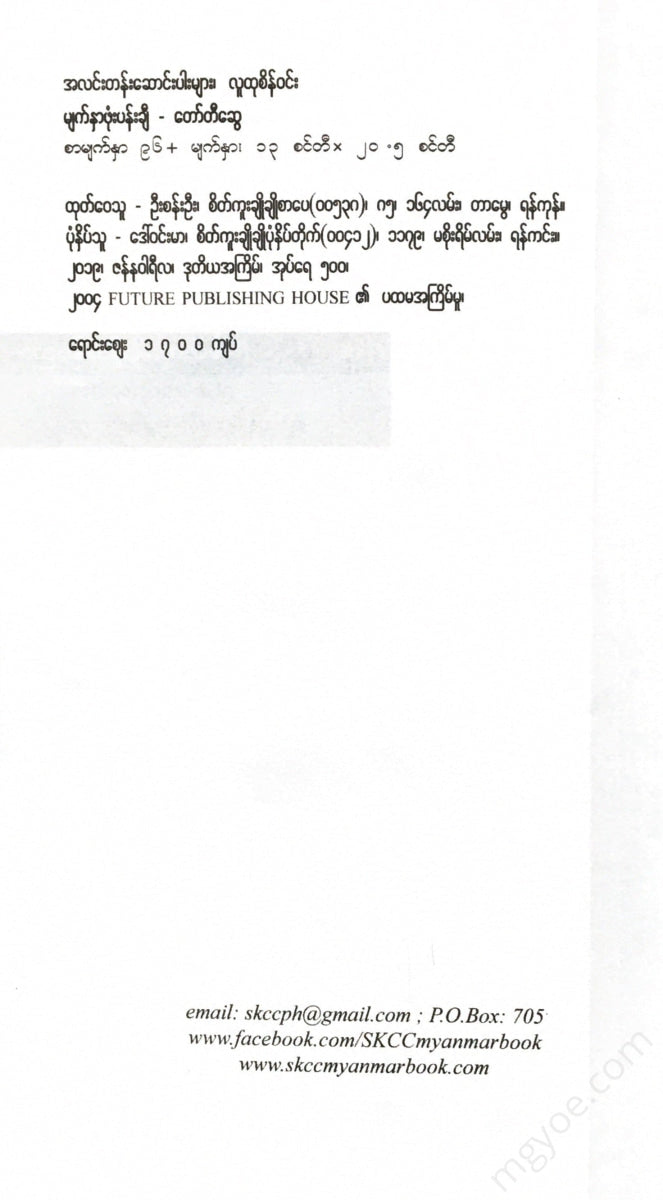စိတ်ကူးချိုချိုစာပေ
Public Diamond - Light Articles
Public Diamond - Light Articles
Couldn't load pickup availability
What is the most important thing about being a journalist ?
"What is the most important requirement for a journalist?"
This is the most frequently asked question for a former journalist. It is often asked by young people who are interested in journalism, as well as by young people who are already working in the field.
When I first entered the world of journalism, I wanted to know this too. I searched and read books. What is news? How do I find news? How do I follow it? How do I write it? How do I give a headline? How do I translate news? How do I translate articles? How do I write reviews and headlines? I had to read and study them.
There were no journalism schools, so all I could do was memorize what adults said and read books. Journalism was thought to be something that could be learned systematically, so I couldn't bring myself to learn it by doing it myself. I also memorized a quote from the great American journalist Joseph Pulitzer.
“When I talk about opening a journalism school, people smile. You can’t teach a journalist. They say you’re born with it. They also say you’ll learn it by doing it. They agree that the best classroom for a journalist is his or her own newspaper. But that’s not enough. It’s true that every journalist is born with a curiosity and a desire to know. But that’s not all. You need to be able to write clearly so that the other person can understand what you’re trying to say, to separate news from nonsense, to separate gossip from gossip, to understand why one page is interesting and another page is boring, and to teach it systematically. How can a person write the heart of a newspaper without knowing history, geography, science, poetry, philosophy, and art? A journalism school will teach you all this. But these are not the main points. The main purpose of journalism schools is to "teach" young people to think.
Joseph Pulitzer, the father of the famous Pulitzer Prizes, said this just before he died. In his will, he donated two million dollars to open a journalism school at Columbia University. Until Pulitzer died in 1911, there was no journalism school anywhere. This was because of the myth that journalism could not be taught. Columbia University, which received two million dollars from Pulitzer, was not enthusiastic about opening a journalism school. Pulitzer's money was the only thing that made it possible.
It was opened. Now, Columbia University's journalism school has a reputation as one of the best in the world.
I used to believe that journalism needed to be learned systematically, and I still believe that now, even at the age of 60, I still believe that. But things have changed a bit. When I was young, I believed that skill was the most important thing for a journalist. That's why I studied and acquired skills tirelessly. After working in the world of journalism for many years, I realized that there is something more important than skill. That thing is "honesty."
A journalist is not a creator of history like writers, poets, or politicians. Although he writes and participates in politics, a journalist is not a participant himself. He only records the stories of those who participate. While writing about famous people on the world stage, a journalist, who is only human, sometimes wants to become famous himself. This is where the role of "honesty" comes into play.
The job of a journalist is nothing to be proud of. It's just writing the news from behind the scenes in the editorial room. So, I've seen some journalists commit terrible crimes when they break their morals.
Now that I'm over 60, I've seen many people who broke the journalistic code and became famous, and who did all sorts of stunts, but ended up in a bad ending. That's why I've learned something after being over 60 in food and over 40 in writing...
It turns out that the most important requirement for a journalist is "honesty."
Light Journal No. ( 191 )
February 25 , 2002 .

























